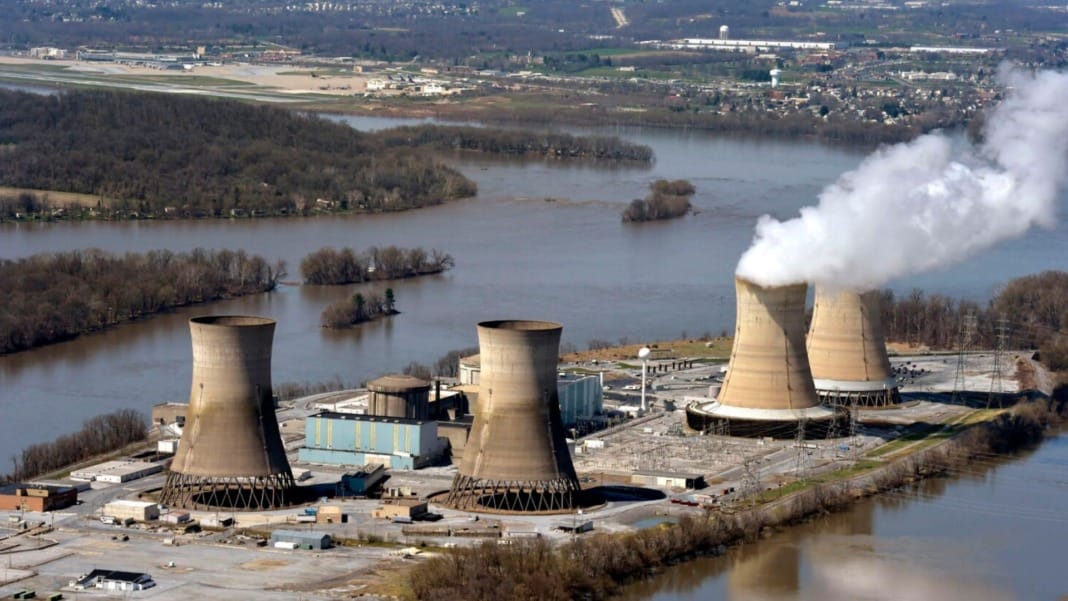According to a report by The Washington Post, Microsoft is working on a deal to bring the Three Mile Island nuclear power plant back online. You may recall this infamous plant in Pennsylvania, known for a partial reactor meltdown in 1979. Microsoft intends to revive the plant for an entirely new purpose — powering its growing AI demands.
Under the proposed deal, Microsoft would be the plant’s only customer for the next 20 years, taking 100% of the plant’s energy output. Why does Microsoft need so much power? The answer is simple: AI. Artificial intelligence systems require vast energy to run, and Microsoft’s ambitious AI projects will need all the electricity the plant can provide. If the deal gets approved, this single plant would keep Microsoft’s AI operations up and running for decades.
We’re restarting Three Mile Island Unit 1 as the new Crane Clean Energy Center! Through a 20-year agreement, Microsoft will use the energy from the renewed plant to help match the power its PJM data centers use with carbon-free electricity. 🧵
— Constellation (@ConstellationEG) September 20, 2024
More info⬇️https://t.co/NfKGdJgMA0 pic.twitter.com/z9ydxDXw1U
The scale of Microsoft’s energy needs
If regulators give the green light, Three Mile Island will generate enough power to supply 800,000 homes — though not a single home will receive this energy. Instead, all of it will go straight to Microsoft’s AI development. So, while households won’t benefit from the plant’s electricity, Microsoft will use it for AI video tools and more, potentially live-streaming demonstrations of their latest tech innovations.
Despite the scepticism about AI’s heavy energy consumption, there is a positive aspect to this plan. Microsoft has committed to using zero-emission electricity to power its AI developments. In this context, reopening a decommissioned nuclear plant could relieve some pressure from the existing power grid, which is already feeling the strain from the growing demands of artificial intelligence.
A first-of-its-kind deal
If it proceeds, this deal would be groundbreaking for several reasons. Never before has a commercial nuclear plant worked exclusively for one private company. Furthermore, this would mark the first time a decommissioned power plant has been reactivated. It’s important to note that Three Mile Island closed five years ago for economic reasons unrelated to the 1979 partial meltdown. The plan is for the plant to be back up and running by 2028.
Joseph Dominguez, CEO of Constellation Energy — the company that owns the plant — sees this as more than an economic opportunity. “The energy industry cannot be why China or Russia beats us in AI,” Dominguez remarked. However, some might view this comment as self-serving, given Constellation stands to make a massive profit if the deal goes through.
Let’s look at the numbers. A typical nuclear plant earns around US$470 million annually. If Microsoft purchases all of the plant’s output for 20 years, that amounts to US$9.4 billion. Constellation is investing US$1.6 billion to get the plant back online, supported by federal subsidies and tax breaks from the Inflation Recovery Act. This leaves a projected profit of around US$7.8 billion. In exchange, Constellation has promised US$1 million in philanthropic donations to the local community over five years, which averages US$200,000 annually.
Regulatory hurdles and local impact
Of course, this isn’t a done deal yet. Constellation still needs to clear several regulatory hurdles, including rigorous safety inspections by the Nuclear Regulatory Commission (NRC). The NRC has never approved reopening a decommissioned nuclear plant, so this will be uncharted territory. Additionally, there may be questions about the fairness of tax breaks granted to a plant whose entire output is reserved for a single company rather than serving broader communities.
. @GovNuclear pic.twitter.com/cs73c76QVL
— Constellation (@ConstellationEG) September 20, 2024
However, there are some upsides. Constellation expects to hire around 600 employees to operate the plant, which would be a significant boost to local job opportunities. The company also stated that it will not seek further subsidies from the state of Pennsylvania. Interestingly, the Palisades nuclear plant in Michigan also attempts to reopen but plans to supply its energy to the public grid instead of serving a single private enterprise like Microsoft.





